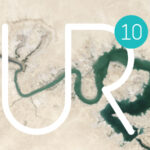
A planet remade? How solar geoengineering may deliberately change (y)our climate – and how we understand risk
October 29, 2020 11:10 am Leave a comment
A planet remade? How solar geoengineering may deliberately change (y)our climate – and how we understand risk
Organizer: Red Cross Red Crescent Climate Centre
| We are entering the era of climate change consequences. Regional and local impacts are becoming more manifest. An increasingly feasible technological option that was once seen as crazy and taboo is now gaining momentum: “solar geoengineering”. Also known as solar radiation management (SRM), it essentially consists of blocking sunlight to cool down the planet: a deliberate, large-scale intervention in the global climate system to try to help manage and reduce climate change risks. In the context of tipping points or runaway climate change scenarios, models suggest that SRM could help reduce impacts on some of the most vulnerable, but global power dynamics are not set up to ensure that the interests of the most vulnerable are elicited, considered, and addressed. Join this intensely interactive session to engage with the basics of science, technology, policy, ethics, and risk management dimensions of how solar geoengineering may reshape our future – and what it all means for the UR community. |
Speakers:
Pablo Suarez, Associated Director Red Cross Red Crescent Climate Centre

